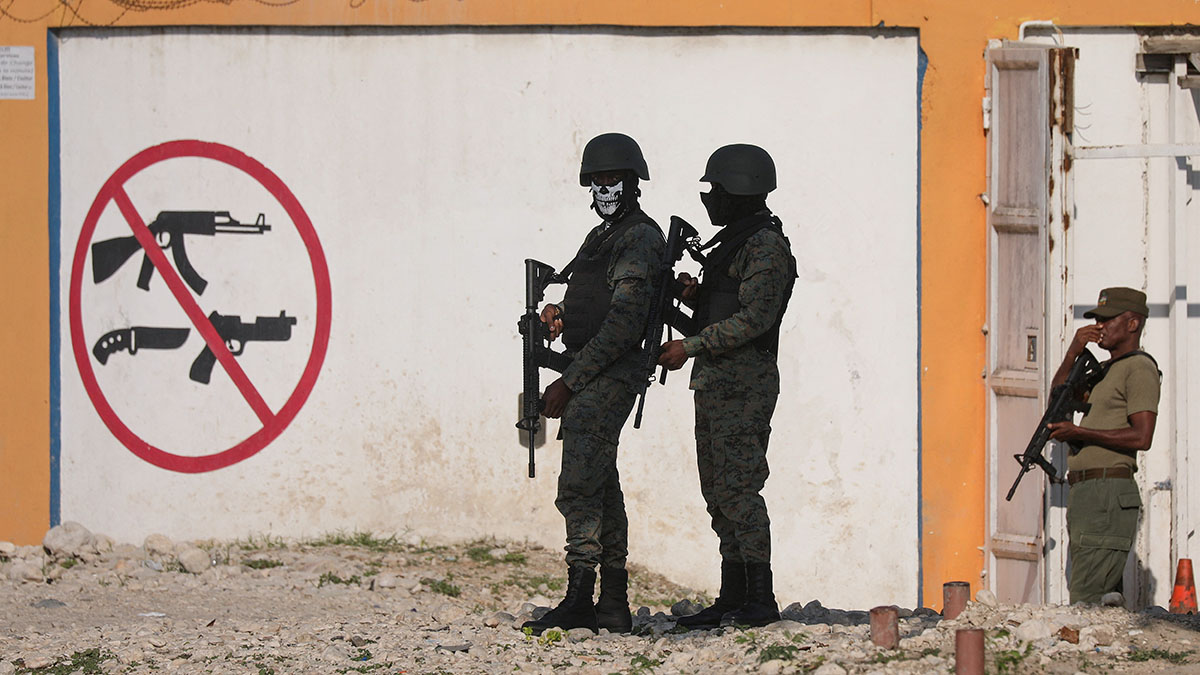Haiti, long plagued by political instability and economic hardship, finds itself in the throes of a dire crisis. Armed gangs have overrun the capital city of Port-au-Prince, unleashing violence and chaos upon its residents. With the government in disarray and thousands fleeing for safety, the nation teeters on the brink of collapse.
Absence of government
The absence of effective governance exacerbates Haiti’s predicament. Prime Minister Aareal On-Ree, unable to return to his country due to security concerns, struggles to assert control. Denied permission to land in neighbouring Dominican Republic, he seeks refuge in Puerto Rico. The international airport, a vital lifeline, is under constant threat from armed groups, further isolating the government.
Ultimatum from gangs
In a brazen display of power, gangs led by Jimmy Cherizier, also known as “Barbecue,” issue an ultimatum demanding Prime Minister On-Ree’s resignation. Threatening genocide and civil war, they rally under the banner of “Regroupement Vivre Ensemble.” Their control over 80 per cent of the capital city underscores the gravity of the situation.
“If Ariel Henry doesn’t step down, the country will suffer a genocide. If Ariel Henry doesn’t step down, if the international community continues to support Ariel Henry, they will lead us directly into a civil war that will end in genocide. The international community, especially the United States, Canada, France, and the Core Group will be responsible for all the people who die in Haiti," said Jimmy.
Political turmoil and resentment
The roots of the crisis lie in Haiti’s turbulent political landscape. Prime Minister On-Ree’s extended tenure, facilitated by international intervention following the assassination of the previous president, stokes resentment among citizens. Delayed elections and prolonged rule without a democratic mandate fuel anger and discontent.
Impact Shorts
More ShortsAmid the power struggle, ordinary Haitians bear the brunt of gang violence. Forced from their homes, thousands are displaced, joining the ranks of the homeless. Victims recount harrowing experiences of destruction and injury, painting a grim picture of life under gang rule.
“The armed gangs forced us to leave our homes. They destroyed our houses, and we’re on the streets,” said Nicolas, a victim of gang violence living in a camp.
“I’m a moto-taxi driver. I was resting. There was a burst of bullets and I was hit in the foot,” said Jean Luckner René, moto-taxi driver. Shopkeeper Andrise François, “At this very moment, heavily armed bandits are storming my shop. Oh Lord, please don’t let them set fire to it!”
International complicity and neglect
The international community, particularly the United States, faces scrutiny for its role in Haiti’s plight. With firearms flowing into the country, external actors share responsibility for fuelling the crisis. Despite pledges of financial aid, tangible support remains elusive, leaving Haiti to fend for itself.
“There’s not a single gun or bullet that’s manufactured in Haiti. Almost all of it comes from the United States, a lot of it directly from the Port of Miami,” said Bill O’Neill, UN Human Rights expert on Haiti.
Neighbouing nations turn away
Neighbouing nations, including the Dominican Republic, offer little assistance to their beleaguered neighbour. Refusing entry to Haitian refugees and fortifying borders, they exacerbate Haiti’s isolation. The once-promising relationship between Haiti and its neighbous now stands fractured, further deepening the crisis.
“We will never accept (Haitian) refugee camps in our country, that is out of question,” said Dominican President Luis Abinader.
Once hailed as the “Jewel of the Antilles,” Haiti now grapples with abandonment and neglect. As the world watches, its people endure unimaginable suffering, caught in the crossfire of political strife and gang warfare. Without immediate intervention and genuine solidarity, Haiti’s future hangs in the balance, a stark reminder of the consequences of indifference in the face of crisis.
Views expressed in the above piece are personal and solely that of the author. They do not necessarily reflect Firstpost_’s views_.
)